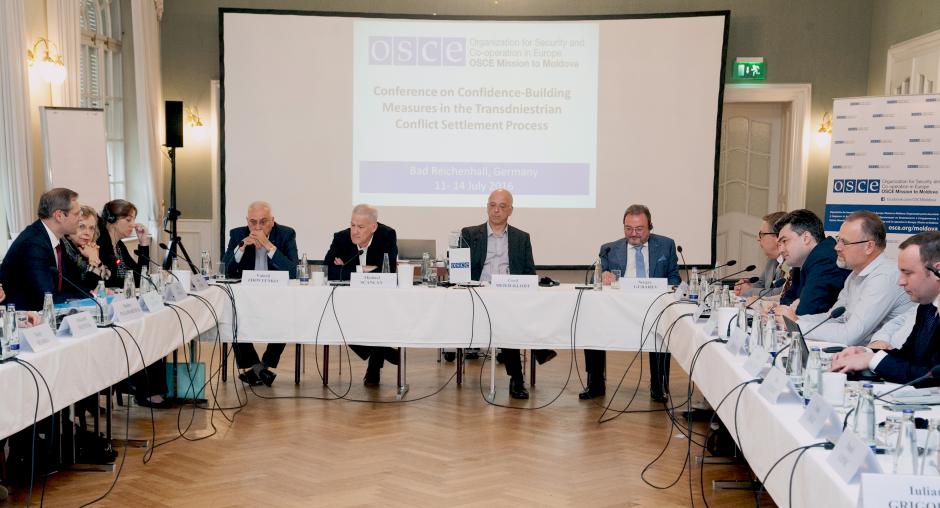Bavaria conference reinforces German OSCE Chairmanship’s emphasis on an outcomes-based Transdniestrian settlement process

BAD REICHENHALL, Germany, 14 July 2016 – A two-day conference on confidence-building measures in the Transdniestrian settlement process was held in the town of Bad Reichenhall in Germany on 12 and 13 July 2016. As in past years, the conference, which traditionally takes place in the German state of Bavaria, brought together political representatives of the sides and international 5+2 partners in an informal setting to address the challenges at hand and advance confidence-building measures that would strengthen the process.
“The past few months have witnessed intensified dialogue between the sides, thanks in no small part to the unparalleled efforts and consensus among the mediators and observers,” noted Ambassador Cord Meier-Klodt, Special Representative of the German OSCE Chairperson-in-Office for the Transdniestrian Settlement Process.
During 5+2 talks on 2 and 3 June in Berlin, the sides committed to undertake concrete steps within a set timeframe, including in the fields of ecology, education, transportation and telecommunications.
“Of the commitments included in the Berlin protocol, the sides have completed an agreement on ecology and exchanged lists on the issue of criminal cases,” said Ambassador Michael Scanlan, Head of the OSCE Mission to Moldova. “The Bavaria conference’s informal setting provided a unique opportunity for the sides to continue working towards the remaining agreements in order to deliver important benefits for people on both banks and to strengthen the settlement process.”
“As a confidence-building measure in support of the formal process, I’m happy to say that the conference succeeded in promoting the emphasis on an outcomes-based process that the German Chairperson-in-Office and our international partners believe is a precondition for progress,” concluded Ambassador Meier-Klodt.
The conference is a multiyear initiative funded by the German government and was organized by the OSCE Mission to Moldova.
